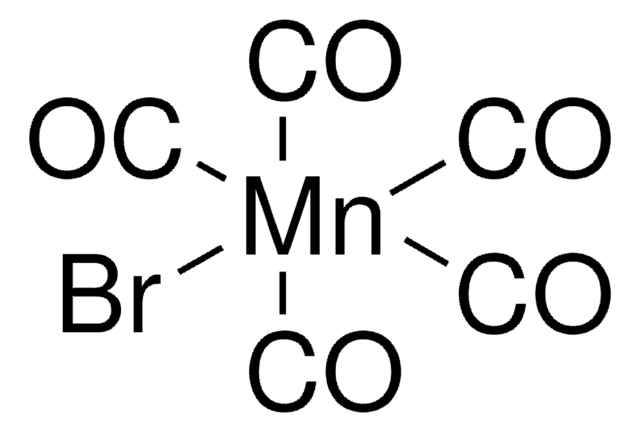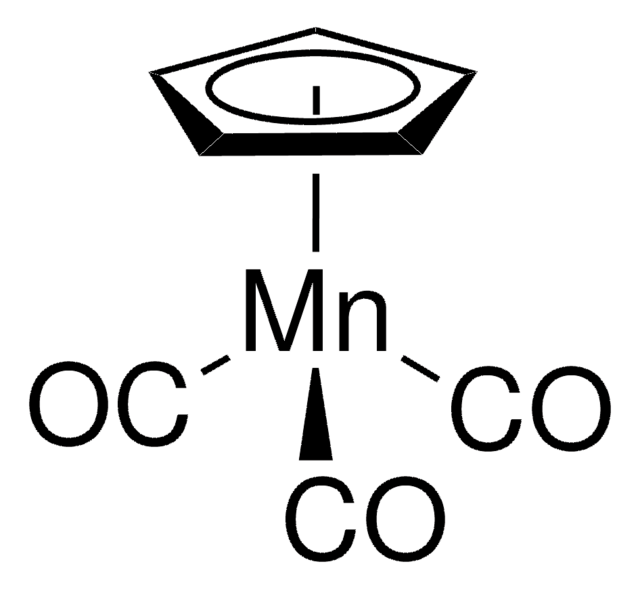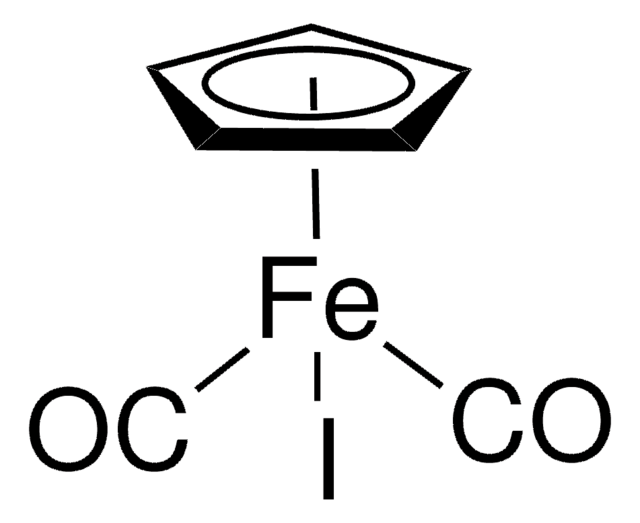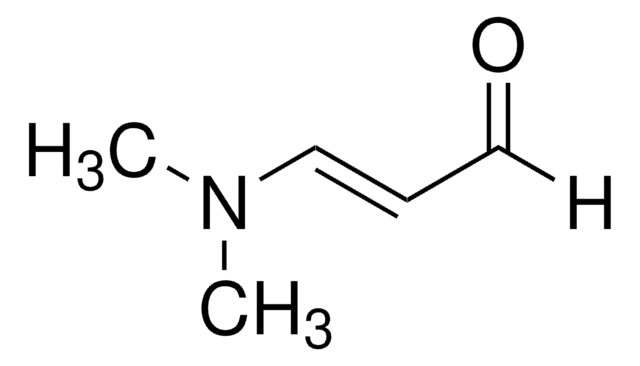317632
(Methylcyclopentadienyl)manganese(I) tricarbonyl
Sinónimos:
(Methylcyclopentadienyl)tricarbonylmanganese, MCMT, Tricarbonyl(2-methylcyclopentadienyl)manganese, Ethyl MMT, MMT, NSC 22316
About This Item
Productos recomendados
vapor density
>1 (vs air)
Quality Level
vapor pressure
0.05 mmHg ( 20 °C)
form
liquid
reaction suitability
core: manganese
reagent type: catalyst
refractive index
n20/D 1.584 (lit.)
bp
232-233 °C (lit.)
mp
−1 °C (lit.)
density
1.38 g/mL at 25 °C (lit.)
SMILES string
[Mn].[C-]#[O+].[C-]#[O+].[C-]#[O+].C[C]1[CH][CH][CH][CH]1
InChI
1S/C6H7.3CO.Mn/c1-6-4-2-3-5-6;3*1-2;/h2-5H,1H3;;;;
InChI key
LYHJNAIHGFWRKM-UHFFFAOYSA-N
Categorías relacionadas
General description
Application
It can also be used as a reactant for:
- Aldol addition reactions.
- Preparation of homo- and heteronuclear mixed biscarbene complexes with conjugated bithiophene units.
- Molecular fragmentation using shaped femtosecond laser pulses.
- Preparation of MnAs thin films grown on GaAs(001) by metalorganic vapour phase epitaxy (MOVPE).
signalword
Danger
Hazard Classifications
Acute Tox. 1 Inhalation - Acute Tox. 2 Dermal - Acute Tox. 3 Oral - Aquatic Acute 1 - Aquatic Chronic 1 - Skin Irrit. 2 - STOT RE 1 Inhalation
target_organs
Lungs
Storage Class
6.1A - Combustible acute toxic Cat. 1 and 2 / very toxic hazardous materials
wgk_germany
WGK 3
flash_point_f
204.8 °F - closed cup
flash_point_c
96 °C - closed cup
ppe
Eyeshields, Faceshields, Gloves, type ABEK (EN14387) respirator filter
Certificados de análisis (COA)
Busque Certificados de análisis (COA) introduciendo el número de lote del producto. Los números de lote se encuentran en la etiqueta del producto después de las palabras «Lot» o «Batch»
¿Ya tiene este producto?
Encuentre la documentación para los productos que ha comprado recientemente en la Biblioteca de documentos.
Nuestro equipo de científicos tiene experiencia en todas las áreas de investigación: Ciencias de la vida, Ciencia de los materiales, Síntesis química, Cromatografía, Analítica y muchas otras.
Póngase en contacto con el Servicio técnico











